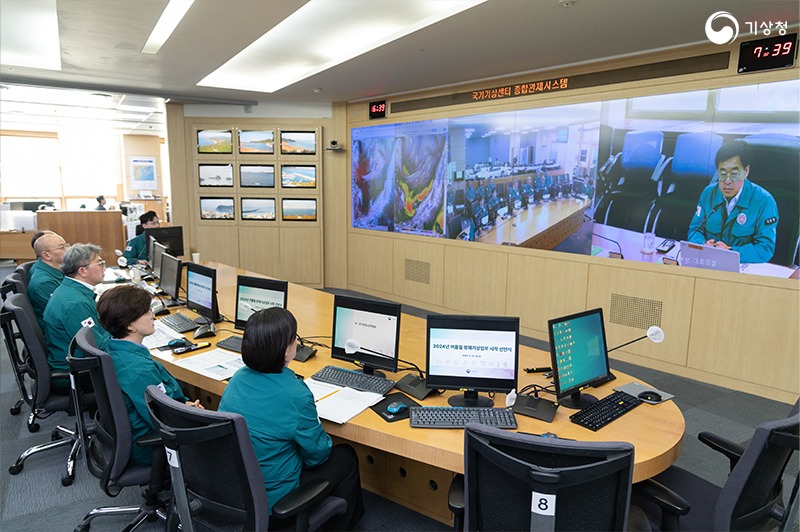
The Korea Meteorological Administration (KMA) on May 1 announced its launch of a project to develop a homegrown climate prediction system. Shown is the launching ceremony on May 14, 2024, for summer disaster prevention meteorological operations at the KMA in Seoul's Dongjak-gu District. (KMA)
By Margareth Theresia
Development has begun of a national system to predict climate in the country and East Asia a decade down the road.
The Korea Meteorological Administration (KMA) on May 1 announced the launch of the project the day before to independently produce climate predictions from a month to 10 years later to support the country's goal of achieving carbon neutrality by 2050, as well as help devise national policy, plans, systems and strategies to respond to the climate crisis.
To this end, a seven-year budget of KRW 49.5 billion was allocated based on the KMA's numerical forecast model from this year until 2031.
The proposed system aims to produce mid- to long-term climate predictions from one month to 10 years.
After 2031, the KMA aims to produce climate predictions every year customized for the needs of end users. The data provided will be used for disaster prevention and management, construction, finance and insurance, and energy and cover items like temperature, precipitation, extreme weather, snow, hail, storms and frost.
KMA Administrator Chang Dong-Eon said, "We will develop a national climate prediction system and technologies for data processing and use customized for the rapidly changing climate environment driven by climate change in East Asia and on the Korean Peninsula, as well as do our best to swiftly respond to demand for a diversity of climate prediction information and ensure public safety by responding to climate disasters."
margareth@korea.kr
Most popular
- Korea.net welcomes 2025 K-influencers, Honorary Reporters
- 2025 Honorary Reporter class pledges to spread 'real Korea' worldwide
- US urged to exempt tariffs on Korea in first '2+2' trade talks
- 'Gangnam Style,' 'Baby Shark' make YouTube's 2005-25 best list
- High-tech observation system helps find super-Earth exoplanet
